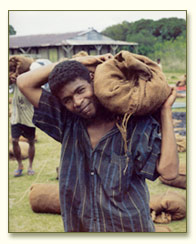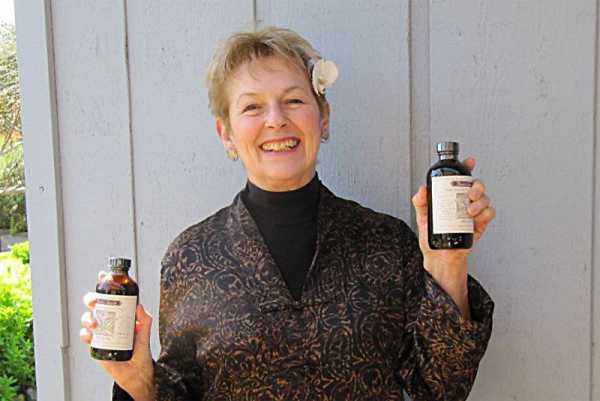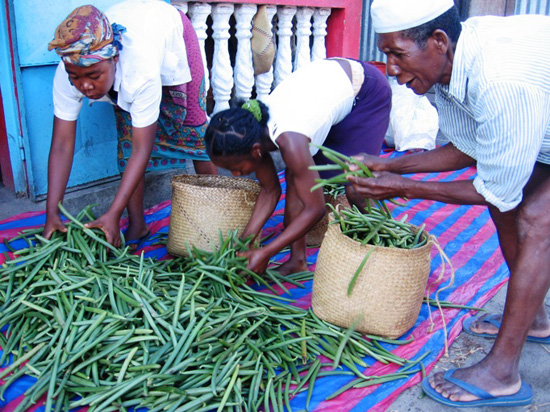
I'm amazed at how superior your vanilla is!
– Des, The Grommet
Sugar, Coffee, Chocolate Vanilla: the backbone of the tropical foods economy. Four products that most of us use daily. But, do you know where your morning coffee is grown, or the conditions under which it’s grown? What about that chocolate bar you had yesterday afternoon? Who processed the sugar you sprinkled over your cereal? Is the vanilla in your ice cream natural or synthetic?
The truth is, few of us know much about where these food staples are grown, or whether the people who grow them earn enough to feed their families, have schooling available for their children, or have access to basic medical care.
Consider this: Coffee and chocolate traditionally grew in the dappled light of the forest. They couldn’t tolerate full sun. In order to feed our insatiable desire for coffee and chocolate, new varieties of these two plants were developed to grow in the sun. Land was cleared – often using slash and burn techniques which quickly deplete the soil – and the plants produced product. On the surface, except for depleted soil, things should be better for the growers, right? After all, the soil can be amended.
Unfortunately, the answer is an emphatic “no.” Most small growers haven’t the money or resources for amending the soil. Composting and mulching are beginning to be more common practice in many developing countries but chemical fertilizers are costly. As a result, the soil integrity quickly grows worse, making it more vulnerable to natural disaster.
This is what occurred when Hurricane Mitch devastated Honduras and El Salvador in 1998. Land that was cleared for sun-grown coffee gave way and created a wall of mud that swallowed an entire village, and killed more than 1000 people. The El Salvador earthquakes of 2000 also triggered massive slides that killed hundreds of people.
Vanilla is slightly different in that it’s always agriculturally sustainable. However, throughout the tropics, the people who grow vanilla also often grow coffee, chocolate, or sugar. Additionally, as 98% of the world’s vanilla is actually synthetic, growers are severely affected by the use of synthetics and the frequent price drops when supply exceeds demand.
These are a few of the problems that affect workers in the tropics. These, and other troubling conditions are responsible for the thousands of immigrants who flood industrialized countries in search of better wages. Do they want to leave their homes and families in order to support their loved ones? In most cases the answer is “no.”
What can we do to make a difference? First, become informed. Whenever possible, learn where the products you use are grown and under what conditions. Purchase sustainably grown products when possible. Choose products that are flavored with natural vanilla rather than synthetic vanillin. Buy shade-grown fairly traded coffee and chocolate when possible. These products may cost a little more, but that extra money can go a long way toward providing better living conditions for the people who bring us the products we love. The entire planet is affected by the ecological and environmental conditions of the tropics. As consumers of foods of the tropics, we would be wise to support sustainable, conscious agriculture in these equatorial lands. With this attitude, we can all benefit.

Photo by Aust & Hachmann
I was given a small bottle of Rain’s Choice in a gift basket and I have been hooked ever since. The flavor makes all of my baking so much better! I will never use grocery store vanilla again!


© 2021. All Rights Reserved
Designed/Developed by Kat & Mouse